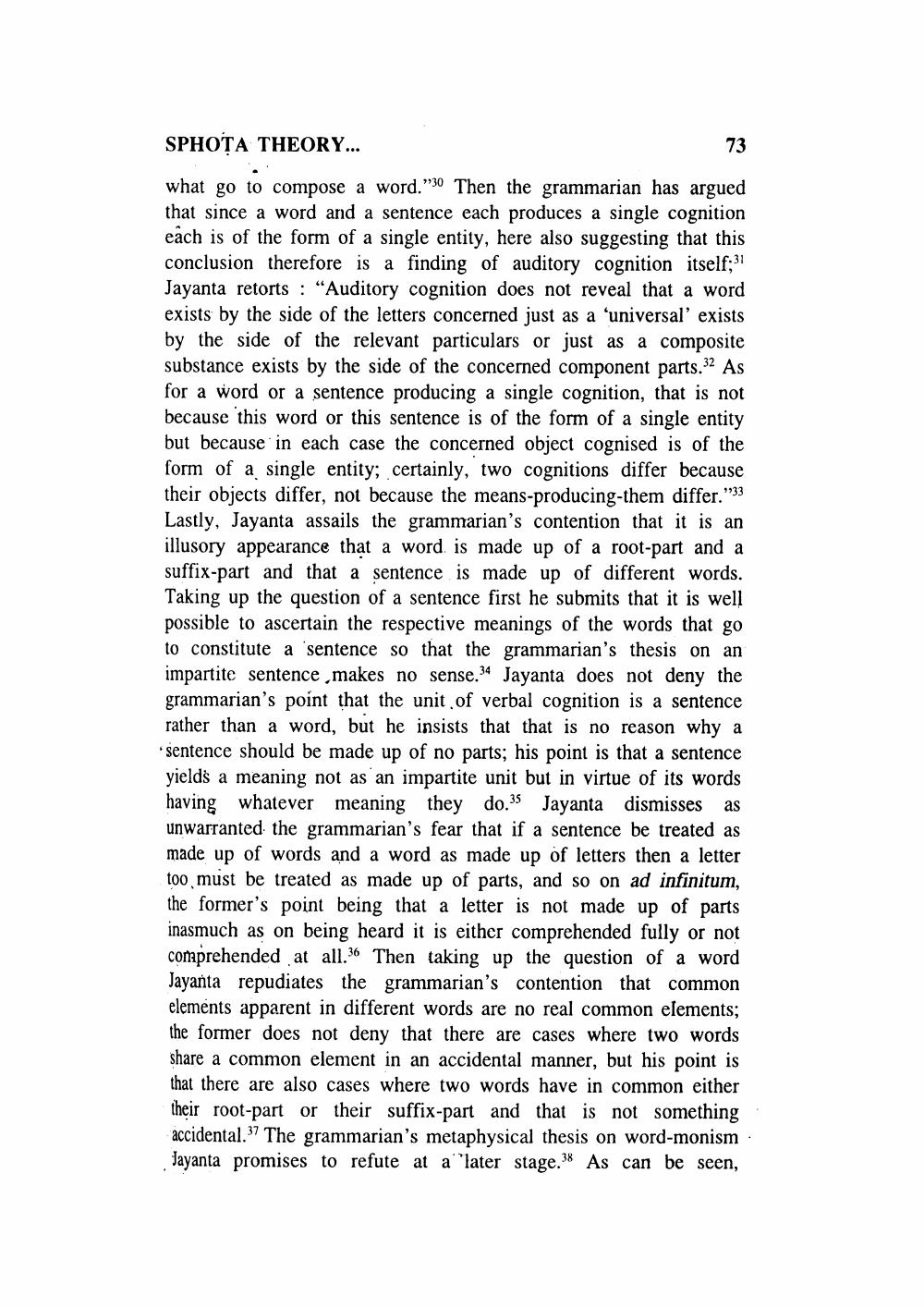________________
SPHOTA THEORY...
73
what go to compose a word.”30 Then the grammarian has argued that since a word and a sentence each produces a single cognition each is of the form of a single entity, here also suggesting that this conclusion therefore is a finding of auditory cognition itself; 31 Jayanta retorts : “Auditory cognition does not reveal that a word exists by the side of the letters concerned just as a 'universal' exists by the side of the relevant particulars or just as a composite substance exists by the side of the concerned component parts. 32 As for a word or a sentence producing a single cognition, that is not because this word or this sentence is of the form of a single entity but because in each case the concerned object cognised is of the form of a single entity; certainly, two cognitions differ because their objects differ, not because the means-producing-them differ."33 Lastly, Jayanta assails the grammarian's contention that it is an illusory appearance that a word is made up of a root-part and a suffix-part and that a sentence is made up of different words. Taking up the question of a sentence first he submits that it is well possible to ascertain the respective meanings of the words that go to constitute a sentence so that the grammarian's thesis on an impartite sentence ,makes no sense.34 Jayanta does not deny the grammarian's point that the unit of verbal cognition is a sentence rather than a word, but he insists that that is no reason why a * sentence should be made up of no parts; his point is that a sentence yields a meaning not as an impartite unit but in virtue of its words having whatever meaning they do.35 Jayanta dismisses as unwarranted the grammarian's fear that if a sentence be treated as made up of words and a word as made up of letters then a letter too must be treated as made up of parts, and so on ad infinitum, the former's point being that a letter is not made up of parts inasmuch as on being heard it is either comprehended fully or not comprehended at all.36 Then taking up the question of a word Jayanta repudiates the grammarian's contention that common elements apparent in different words are no real common elements; the former does not deny that there are cases where two words share a common element in an accidental manner, but his point is that there are also cases where two words have in common either their root-part or their suffix-part and that is not something accidental. 37 The grammarian's metaphysical thesis on word-monism Jayanta promises to refute at a later stage.38 As can be seen,




